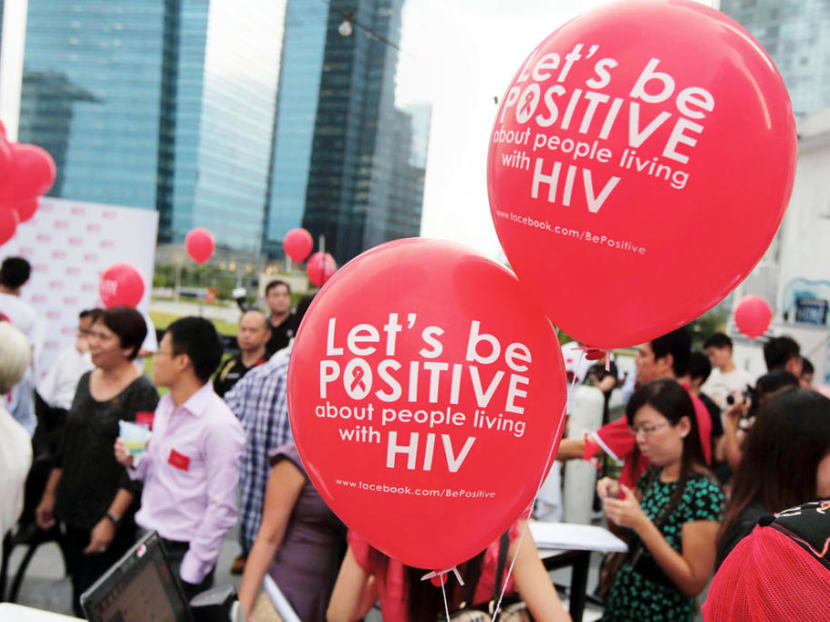HIV laws out of touch with scientific evidence and should be amended
On June 26, the High Court dismissed an appeal by a man with the human immunodeficiency virus (HIV).
The 28-year-old was appealing his two-year jail term after being convicted of having sex with a male partner without telling him about the risk of infection.

Laws governing those with the human immunodeficiency virus are outdated and out of touch with the latest scientific evidence, the writers say.
On June 26, the High Court dismissed an appeal by a man with the human immunodeficiency virus (HIV).
The 28-year-old was appealing his two-year jail term after being convicted of having sex with a male partner without telling him about the risk of infection. The man had been receiving treatment for HIV.
This case reminds us that legislation on HIV criminalisation and non-disclosure, through Singapore’s Infectious Diseases Act, has unfortunately not kept up with the science of HIV medicine.
Section 23 of the Infectious Diseases Act states that “a person who knows that he has HIV infection shall not engage in any sexual activity with another person unless, before the sexual activity takes place, he has informed that other person of the risk of contracting HIV infection from him; and that other person has voluntarily agreed to accept that risk”.
Current scientific evidence shows that this risk is virtually non-existent in an HIV-positive person undergoing treatment, with the viral load suppressed or “undetectable”.
Those on effective antiretroviral treatment can achieve an undetectable viral load, which means the virus cannot be detected in the blood. This lowers the transmission risk to zero, even during unprotected sex.
Based on estimates cited by the Health Ministry, 72 per cent of those living with HIV are aware of their status. Nearly nine in 10 (89 per cent) of these individuals are receiving treatment. Among those being treated, 94 per cent have an undetectable viral load.
This means an estimated 60 per cent of people living with HIV in Singapore are at no risk of transmitting the virus.
There is no scientific evidence that the criminalisation of HIV prevents its spread. Instead, it reinforces HIV-related stigma and discrimination. These, in turn, limit the reach and efficacy of HIV prevention efforts.
Studies have shown that HIV criminalisation may deter individuals from testing or seeking treatment for the virus.
Last year, 20 HIV experts, including Nobel laureate and French virologist Francoise Barre-Sinoussi, published a consensus statement pointing out the inconsistencies between criminal legislation and the rapid advances in HIV science. They strongly recommended that “more caution be exercised when considering criminal prosecution, including careful appraisal of current scientific evidence on HIV‐related risks and harms”.
The science is clear that HIV criminalisation is counterproductive to HIV prevention and that HIV is no longer the threat it posed.
While we agree that protections should be in place, criminalisation should be limited to cases of intentional and malicious transmission.
Laws introduced in the early years of the Aids (acquired immunodeficiency syndrome) epidemic — when little was known about HIV, and when a sense of fear and panic prevailed — are clearly outdated and out of touch with evidence today.
These laws are potentially damaging to public and personal health, and should quickly be reviewed and amended.
ABOUT THE WRITERS:
Rayner Tan Kay Jin is an HIV researcher at the National University of Singapore’s Saw Swee Hock School of Public Health. Associate Professor David Lye Chien Boon is president of the Society of Infectious Disease (Singapore). Professor Roy Chan Kum Wah is president of Action for Aids Singapore.
Have views on this issue or a news topic you care about? Send your letter to voices [at] mediacorp.com.sg with your full name, address and phone number.









